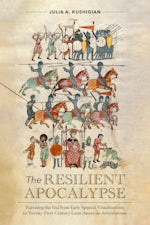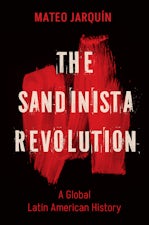The Origins of the Cuban Revolution Reconsidered
By Samuel Farber
230 pp., 6.125 x 9.25, notes, bibl., index
-
Paperback ISBN: 978-0-8078-5673-4
Published: March 2006 -
E-book PDF ISBN: 979-8-8908-7825-0
Published: September 2007 -
E-book EPUB ISBN: 978-0-8078-7709-8
Published: September 2007
Envisioning Cuba
Buy this Book
- Paperback $37.50
- E-Book $25.99
For Professors:
Free E-Exam Copies
Awards & distinctions
A 2006 Choice Outstanding Academic Title
Exploring how historical conflicts between U.S. and Cuban interests colored the reactions of both nations' leaders after the overthrow of Fulgencio Batista, Farber argues that the structure of Cuba's economy and politics in the first half of the twentieth century made the island ripe for radical social and economic change, and the ascendant Soviet Union was on hand to provide early assistance. Taking advantage of recently declassified U.S. and Soviet documents as well as biographical and narrative literature from Cuba, Farber focuses on three key years to explain how the Cuban rebellion rapidly evolved from a multiclass, antidictatorial movement into a full-fledged social revolution.
About the Author
Samuel Farber is professor of political science at Brooklyn College and author of three previous books, including Revolution and Reaction in Cuba, 1933-1960: A Political Sociology from Machado to Castro.
For more information about Samuel Farber, visit
the
Author
Page.
Reviews
"An important addition to existing literature in Cuban studies, and adds primary source, archival research to the continuing debates surrounding Fidel Castro and the Cuban Revolution."--Latin Americanist
"Farber has not only set the record straight, but also he has made a contribution to 'those trying to create a new revolutionary and democratic left in Cuba.'"--International Socialist Review
"Offers a different perspective on the Cuban Revolution. . . . [and] an analytic approach that will attract Latin Americanists, especially those interested specifically in Cuba, and is suitable for classroom use."--Colonial Latin American Historical Review
"Draws on the vast scholarship that has addressed the origins of the Cuban revolution. . . . [Farber's] admirable approach to both domestic and international structural arguments emphasizes constraints and possibilities."--Latin American Research Review
"[An] interesting and polemical book. . . . [Farber] studies carefully, sometimes with illuminating detail, the first two years of the revolutionary process. . . . Students of Cuba, Latin America, the Cold War, and inter-American relations will benefit greatly from it."--American Historical Review
"Delivers a finely balanced judgement . . . and many useful insights. . . . This is a welcome and fine piece of scholarship which brings a few new insights to the academic debates on Cuba."--Journal of Latin American Studies




